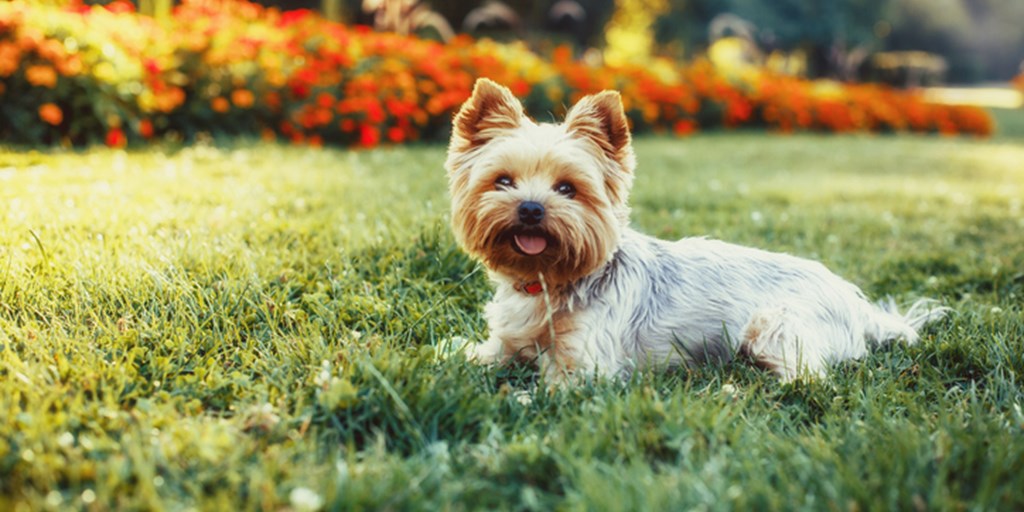Your favorite small breed dog has special nutritional needs when it comes to mealtime. Small breed dogs, such as Pugs, Dachshunds, Terriers, Bichons, and other dogs typically under 20 pounds, have higher metabolisms than their larger breed counterparts. A combination of rapid growth, unique digestion, energy requirements, and feeding frequency all contribute to their power-packed needs.
Here are some feeding considerations small breed dog parents should keep in mind when they are trying to find the best small breed dog food for their four-legged family members.
Start with Small Breed Puppy Food for Growth
On average, small breed dogs grow and develop over a 9-12 month time frame. So relatively speaking, they are done growing in a short timeframe. While they are growing, they may require up to twice the energy of adult dogs! Their high metabolism rate and digestion needs require the right mix of nutrients. Bil-Jac understands these requirements and has carefully formulated Bil-Jac Small Breed Puppy Food with fresh, never frozen chicken as the number one ingredient to provide the nutrition small breed puppies need. In fact, Bil-Jac uses 5 lbs. of real chicken to make a 6 lb. bag.
Small dogs tend to have a small stomach, though they typically need to eat large amounts of food in relation to their tummy size and body weight. In order to help your small dog get all the nutrients they need, it’s helpful to divide your puppy’s meals up over the course of the day. Small, energy-dense meals two to three times per day are recommended for puppies until they reach adulthood. Small breed puppies grow as much during their first year as human beings do in our first 17 years of life, so it’s important to keep up with the right diet as your little furball grows.
Feeding Small Breed Adult and Senior Dogs
Once your dog is fully grown, you will want to determine the best way to feed them. Bil-Jac Small Breed Adult Food is an outstanding option to deliver the nutrients your small and mighty dog needs. Bil-Jac Small Breed Dog Food is crafted so that your dog can easily pick it up and chew it. One option is to feed your best friend once a day. Be sure to only put the amount of food in the bowl your dog should eat for the day so you are not allowing him to overeat. In doing so, your best friend can graze, helping him maintain his energy level as needed.
If your dog tends to eat all his food as soon as you put it in the bowl, you may want to consider breaking up the daily amount of food into two meals. This can help your smaller dog maintain energy more evenly. Small dogs that do not eat on a spread-out schedule may be subject to energy level changes throughout the course of a day. Dividing your dog’s meals into 2-3 a day will help to spread out the energy the food provides. Be sure to divide the amount of food by the number of times a day you are feeding.
No matter how you choose to feed your dog, you will want to be sure to measure out the food each time you serve a meal and be as consistent as possible about when and how many times a day they are eating. When feeding Bil-Jac Small Breed Adult Dog Food, use the Bil-Jac recommended daily feeding amounts. Have fresh water available as well. If needed, adjust the amount of food you give your small breed dog depending on his size, weight, and activity level. If your pooch is not very active and is gaining weight, consider cutting back on his food a little to help keep him at a healthy weight.
As your dog matures, he needs a food to continue to help support his lifelong health. Some smaller breed dogs may be predisposed to jaw and dental issues, which can become a potential feeding issue, especially as they grow older. Bil-Jac Small Breed Senior is formulated to help your dog lead a mature, active lifestyle in his twilight years. It’s easy to chew and has a gentle fiber blend that helps support healthy digestion.
Small Breed Dogs Can Be Picky Eaters
There’s no scientific evidence to prove small breed dogs are pickier eaters. However, most dog parents will attest that small breeds can, at times, be highly selective in what they’ll eat! Though our furry friends are an important part of our family life and we love to make them happy, sharing table food in an attempt to make meals more appealing isn’t the best idea. This can lead to behavioral challenges such as begging or poor eating habits. More importantly, it may rob your best friend of the critical, balanced nutrition they need each day for health.
,

